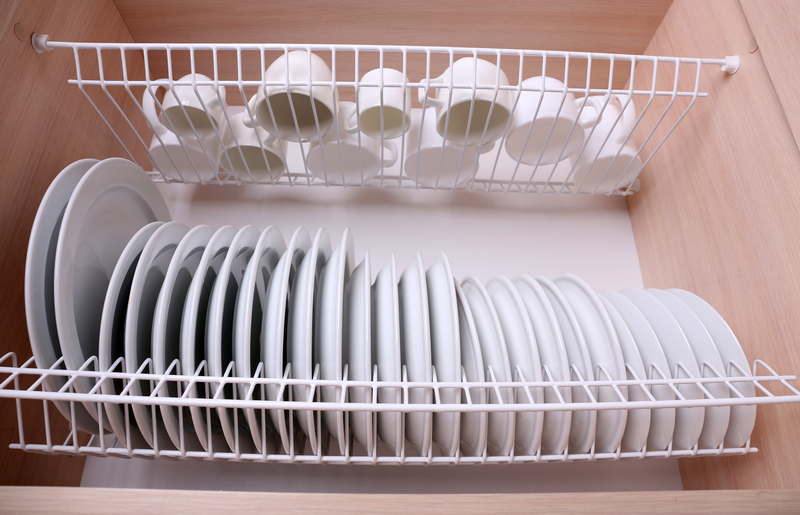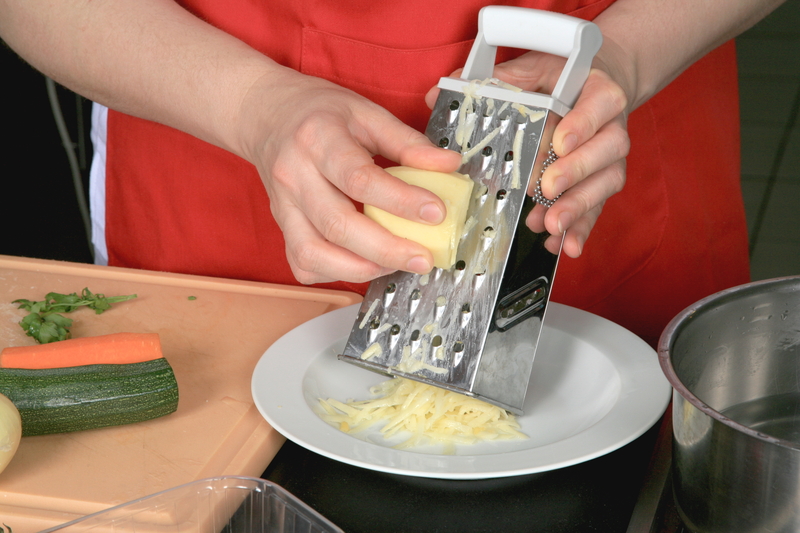Methods to Eliminate Damp Odor
Posted on 02/10/2025
Effective Methods to Eliminate Damp Odor: A Comprehensive Guide
A persistent damp smell can make any space uncomfortable and unwelcoming. Whether it's in the basement, bathroom, closet, or living room, that musty odor is a clear sign of excess moisture and potentially mold or mildew growth. Understanding how to eliminate damp odor is crucial for not just your comfort, but for the health and longevity of your home.
In this detailed article, we'll explore various methods to remove and prevent damp odor, why this smell occurs, and how you can tackle it both naturally and with commercial solutions. We'll also offer tips for tackling the root cause to prevent the return of mildew smells. Use this guide to bring back that fresh scent to your home and improve your indoor air quality.

Understanding Damp Odor: Causes and Risks
Before addressing ways to get rid of damp smell, let's understand why it arises. Knowing the source is key to choosing the right approach.
Main Reasons for Damp Odor
- Excess Moisture: High humidity or water leaks in areas like bathrooms, laundry rooms, or basements create a prime environment for odors.
- Mold and Mildew Growth: Microorganisms flourish in damp areas, releasing compounds that generate musty, earthy smells.
- Poor Ventilation: Insufficient airflow can trap moisture, encouraging lingering odors.
Why should you be concerned? Beside discomfort, persistent damp odors may point to hidden problems like water intrusion, which could ultimately damage structural elements or encourage mold growth, affecting your health.
Thorough Strategies to Remove Damp Odor from Your Home
Here's a step-by-step plan with effective methods to eliminate musty smells and ensure a healthier living space.
1. Identify and Address the Source
- Inspect for Leaks: Check under sinks, around windows and doors, and in the basement or attic for leaks. Repair promptly.
- Check for Condensation: Water on walls, windows, or pipes indicates high humidity, which fosters odor development.
2. Improve Ventilation
- Open Windows and Doors: Allow fresh air to circulate and help dry out damp areas.
- Install Exhaust Fans: Especially in bathrooms, kitchens, and laundry rooms, exhaust fans help remove moisture.
- Use Fans or Air Movers: Portable fans speed up the drying process and disperse trapped air, helping to banish musty odors.
3. Dry and Clean Affected Areas
- Remove Wet Items: Carpets, linens, or cardboard can soak up moisture and should be promptly removed or dried.
- Thorough Cleaning: Wash hard surfaces with soap and water, then dry completely. For persistent stains and mildew, use a vinegar or hydrogen peroxide solution.
- Launder Fabrics: For textiles with a damp, musty odor, launder them with hot water and add vinegar or baking soda for extra odor-fighting power.
4. Use Dehumidifiers and Moisture Absorbers
- Dehumidifiers: These devices pull excess moisture from the air, making the environment less hospitable to mold and mildew, thereby removing damp smells.
- Moisture Absorbers: Products like silica gel packs, activated charcoal, and moisture absorbing crystals work well in smaller spaces such as closets or under sinks.
- DIY Tip: Place bowls of baking soda or kitty litter in musty areas--both absorb smells and moisture naturally.
5. Natural Remedies to Remove Musty Odor
- Baking Soda: Sprinkle on carpets, upholstery, or inside shoes and closets. Let it sit for several hours, then vacuum.
- White Vinegar: Place open bowls of vinegar around affected rooms, or spray diluted vinegar on surfaces to help neutralize odors.
- Activated Charcoal: Absorbs moisture and odors, making it ideal for small, enclosed spaces.
- Essential Oils: Add a few drops to cleaning solutions or a diffuser after eliminating the root cause for a pleasant, fresh aroma.
- Houseplants: Certain indoor plants, like peace lilies and Boston ferns, naturally purify air and help regulate humidity.
6. Professional Treatments and Prevention
- Mold Remediation: If you notice visible mold or cannot get rid of persistent odor, consult a mold remediation specialist.
- Waterproofing: Improve your home's foundation, seal windows and doors, and install proper drainage to prevent future moisture.
- Regular Maintenance: Inspect your roof, plumbing, and gutter systems to prevent recurring issues.
Preventing the Return of Damp Odor
Addressing the root cause is just as important as eliminating mildew smell. Here's how you can ensure those unpleasant odors don't return:
- Keep Humidity Under Control: Aim for indoor humidity levels between 30-50%. Use a hygrometer to monitor levels and run a dehumidifier when needed.
- Provide Regular Ventilation: Open windows when weather allows, use vent fans, and avoid blocking air vents with furniture.
- Use Area Rugs and Furnishings Wisely: Opt for materials and layouts that don't trap moisture. Avoid wall-to-wall carpets in damp-prone areas.
- Store Items Properly: Keep items off the floor in basements and allow air flow around stored boxes and clothing.
- Routine Inspections: Check for leaks, water stains, or musty smells, especially after storms or high humidity periods.
Room-by-Room: Targeted Solutions for Damp Odor Removal
Every part of your home is unique, and so are the challenges for removing dampness smell. Here's how to address musty odors in specific locations:
Basement
- Seal Cracks: Use waterproof sealants on walls and floors.
- Install a Sump Pump: Prevent standing water after heavy rain.
- Run a Dehumidifier: This is especially useful for basements, where humidity often lingers.
Bathroom
- Vent After Use: Always run the exhaust fan during and after showers.
- Wipe Down Surfaces: Dry walls and floors after use, especially around tubs and sinks.
- Fix Leaks: Repair dripping faucets or showerheads promptly.
Closet
- Use Desiccants: Place moisture-absorbing sachets or bake soda inside.
- Air Out Clothes: Avoid placing damp clothes or shoes in enclosed spaces.
- Install Louvered Doors: These promote better air circulation.
Kitchen
- Fix Plumbing Issues: Address leaks or condensation under sinks.
- Use Range Hood: Helps vent steam and odors while cooking.
- Regular Garbage Disposal Cleaning: Odors can accumulate if not cleaned frequently.

Frequently Asked Questions About Removing Damp and Musty Smells
Can I just mask the damp odor with air fresheners?
No. Air fresheners only cover up the musty scent, but do not tackle the underlying source. For long-lasting results and improved health, it's vital to remove the cause of moisture and treat any mildew.
How can I tell if the damp odor is due to mold?
Look for visible patches--often black, green, or white--on walls, ceilings, or items. Mold is often slimy or fuzzy. If you experience allergies, persistent coughing, or headaches at home, it might be due to mold exposure associated with dampness.
Are commercial odor removers better than DIY solutions?
Commercial products can offer rapid results and may kill bacteria or actively neutralize odors. However, many natural methods to remove damp odor (like baking soda and vinegar) are effective, eco-friendly, and inexpensive.
How often should I clean areas prone to damp odors?
Regular cleaning is key. Aim to deep clean bathrooms, basements, and laundry areas every 1-2 weeks. Always address any signs of excess moisture or leaks immediately.
Conclusion: Say Goodbye to Damp Odor for Good
Eliminating damp odors is about more than merely freshening the air--it's about protecting your home and health. From the proper use of dehumidifiers and ventilation to diligent cleaning routines and natural odor-absorbing solutions, advocating a proactive approach ensures long-lasting freshness.
If you're dealing with persistent musty smells, remember to identify and address the root cause before using masking agents. Integrate these practical tips and methods for a cleaner, fresher home ambiance.
Don't underestimate the impact of air quality on your wellbeing--use these proven methods to eliminate musty odor for a home that looks, feels, and smells inviting year-round.





